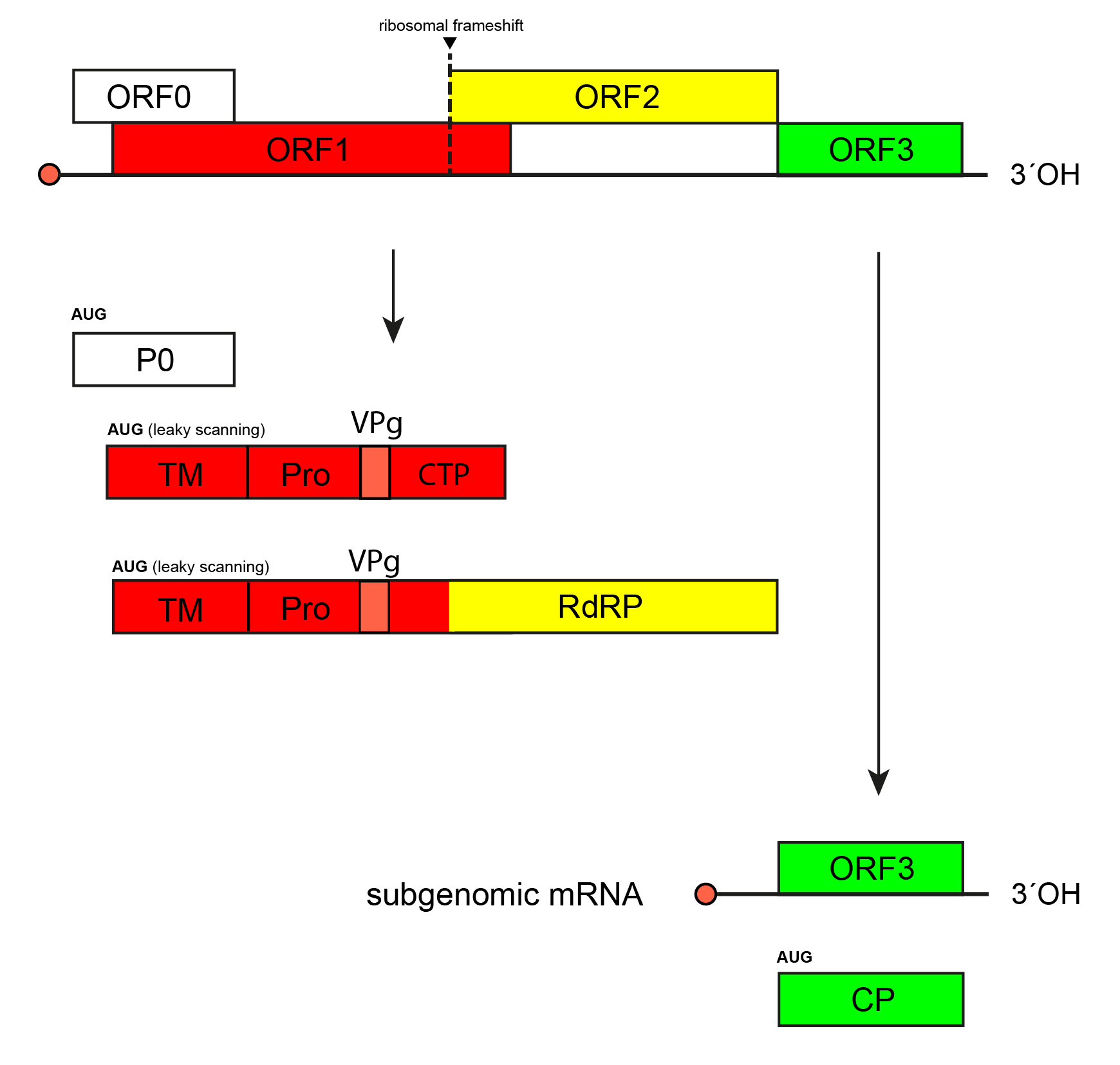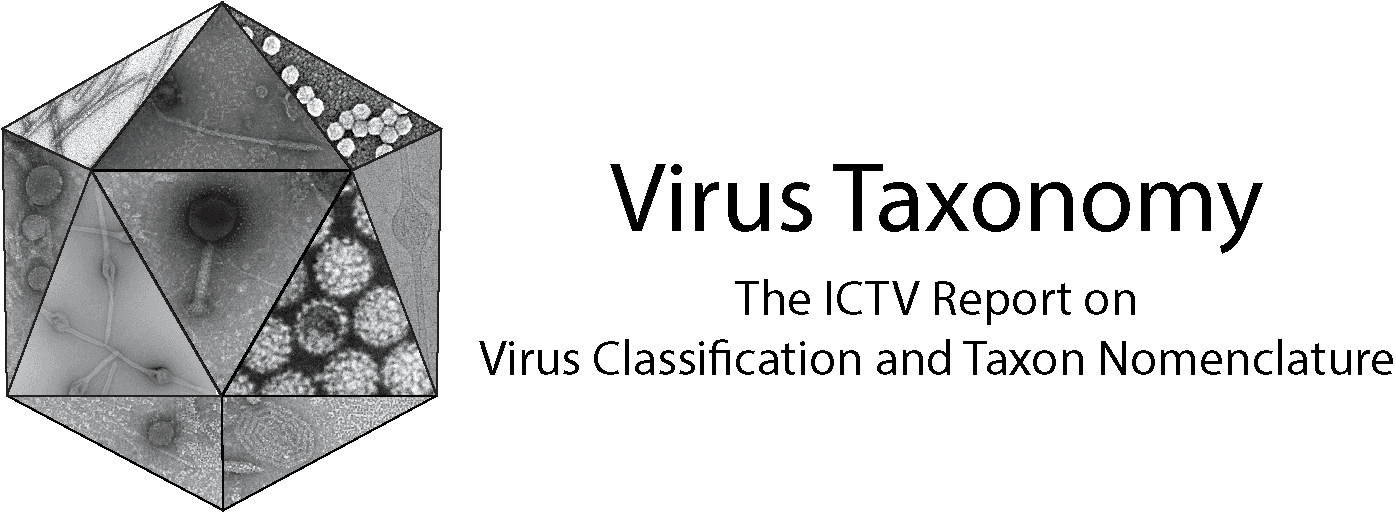Family: Solemoviridae
Genus: Polemovirus
Distinguishing features
This genus includes the single species Polemovirus PNLV. Poinsettia latent virus (PnLV) has a close genetic relationship to poleroviruses in the 5′-proximal three-quarters of its genome but to sobemoviruses in the rest of the genome. Those proteins that are translated from genomic RNA (viral suppressor of RNA silencing, serine protease, VPg, RNA-directed RNA polymerase) are most similar to polerovirus proteins that are also expressed from their genomic RNA, whereas the capsid protein (CP) translated from a subgenomic RNA shares the highest sequence similarity to sobemovirus CPs that are expressed by the same mechanism (Figure 1. Polemovirus).
 |
| Figure 1. Polemovirus Transcriptional and translational map of the genome of poinsettia latent virus (genus Polemovirus). Open reading frames (ORFs) are indicated by their position above the genome in the order -1 and 0; those with sequence homology at the family level are represented by coloured boxes, while those with no sequence homology are shown colourless. P0, protein P0; TM, transmembrane domain; Pro, serine protease domain; VPg, virus protein genome-linked; CTP, C-terminal domain; RdRP, RNA-directed RNA polymerase; CP, coat protein. |
Virion
Morphology
See discussion under family description.
Physicochemical and physical properties
In linear 10–40% sucrose gradient density centrifugation, PnLV virions sediment as one component at 120Srel.
Nucleic acid
The poinsettia latent virus genome is 4,652 nt. See discussion under family description.
Proteins
See discussion under family description.
Genome organization and replication
See discussion under family description.
Biology
See discussion under family description.

